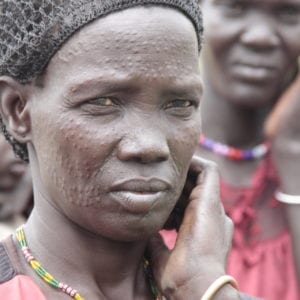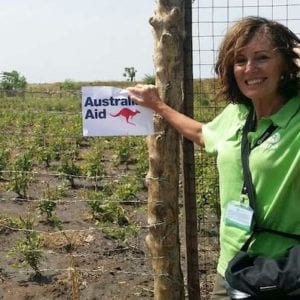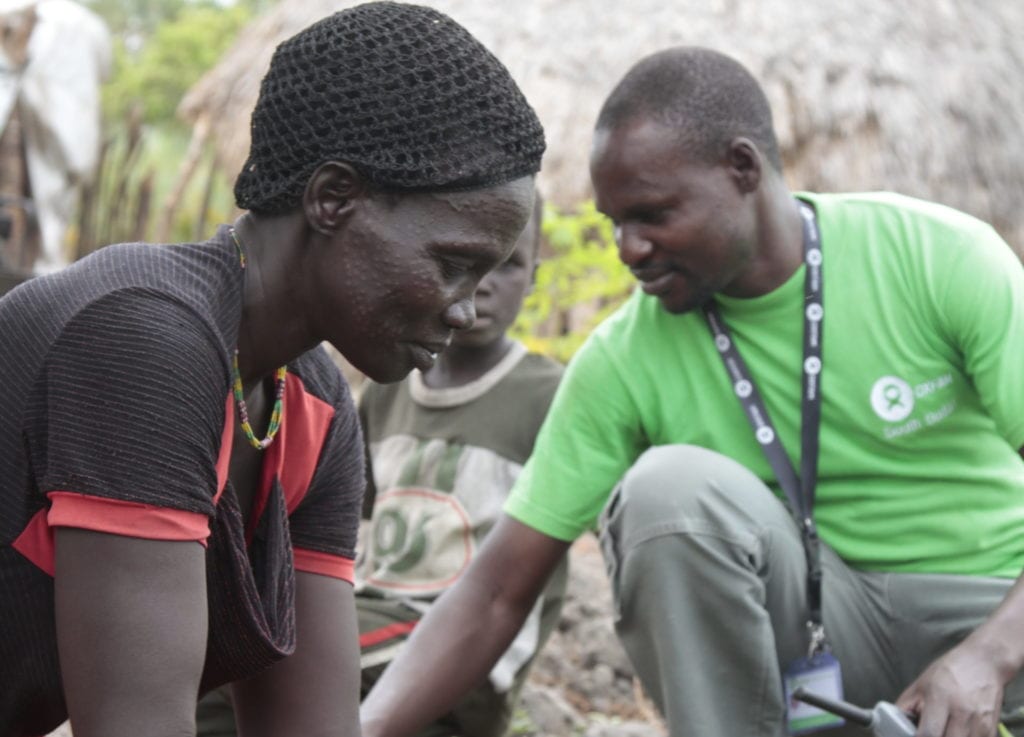Yesterday, Sunday 9 July, saw the sixth anniversary of independence in South Sudan and as I reflect on my recent trip, I keep thinking of meeting Mary Manuai* and hearing her heart-breaking but inspiring story that seemed to encapsulate the broader crisis.
Mary gave birth to her daughter in the middle a swamp after she and 16 other families fled an attack on their village in the north.
“Her name is Nyamuch* – it means ‘born in crisis’,” she told me.
She is a strong and resilient woman and mother who wants what’s best for her children, as all mothers do. But like so many others in South Sudan, she is struggling after three years of civil war.
I met her in the town of Nyal in the south of former Unity State. Only two months earlier, her village in the north had been attacked, forcing Mary and her husband to flee with their children.
She was days away from giving birth.
Along with other fleeing families, they walked for nine days through the Sudd – the biggest swamp in the world, bound for the relative safety of Nyal.

They dragged their young children and few belongings through the water on tarpaulins. Other women told me how their toe nails had fallen off because they were in the water for such a long time.
True to the immense generosity of the South Sudanese people we met, Mary and the 16 other families were given some land to live on by a local family in Nyal, who were themselves struggling to survive.
We always hear about the divisive nature of South Sudan’s civil war, but everywhere we went we saw true community spirit.
However, the worst is far from over for women like Mary.
As with every year since the war started in 2013, this month – July is the peak of South Sudan’s lean season when food is traditionally scarce – is set to see devastating hunger on an unprecedented scale, affecting six million people.
Australian support for the people of South Sudan has never been more appreciated, or more needed. And thankfully, support has been provided. Our Government has given $22.6 million to the humanitarian response since January.
During the trip to South Sudan I did gain some hope, and not just from the remarkable resilience of women like Mary. I also saw examples of Australian aid that is working.
The town of Nyal is just south of the area that was suffering from famine from February to June and is itself on the verge.
The only thing keeping families from experiencing famine conditions is aid.
Being surrounded by the swamp somewhat shelters Nyal’s 30,000 residents from the war, but it also means it is inundated with fleeing civilians who used to live on the other side of the swamp in conflict and previously famine hit areas.
There are also estimated to be 5,000 people living nearby on small islands in the swamp who have fled fighting further north and an attack on Nyal in 2015.
They all need support.
Often, the only way to get aid in is by air, so Oxfam is working with communities to help them support themselves.
With generous donations from many Australians and an Australian aid grant, Oxfam is helping Mary and many others in Nyal and the surrounds to grow remarkably productive food gardens, providing fishing kits and running a canoe program that helps hungry people hiding on swamp islands to travel to aid and food distributions in Nyal, access basic health services and send their children to school.
We’re also fixing and building local wells and toilets, in town and on the islands, which are critical to keep disease and resulting malnutrition at bay.

I visited the closest island, around 40 minutes by canoe from Nyal, and met the remarkable people living there. Some have been living there for years, others for only months; all have fled conflict.
On the island I met Nangima*, another amazing woman, raising her five children by herself after her husband was killed when their village in the north was attacked.
During the fighting, her cows – which are essentially savings accounts in rural South Sudan – were also stolen and her home was destroyed.
She told me that men and women were killed, and some women were raped. South Sudan is a country where women are not safe – according to the UN, 70 per cent of women in the United Nations camps in the capital Juba are survivors of sexual violence.
Oxfam has helped Nangima’s community start a number of productive food gardens by providing seeds, tools and training.
“Now with the gardens we don’t eat the water lilies that taste bad and sometimes make us vomit, because we can grow enough food to eat and have some to sell,” she told me.
On the island, we also saw water pumps and toilets that Oxfam had repaired or helped the community to build.

In South Sudan, when I asked people what they wanted for the future, they told me “we want work and we want peace”; a sentiment echoed by almost everyone I spoke to, including Nangima and Mary.
Peace should be a reality, not a dream in the world’s newest country. And we can continue do more to help the people of South Sudan achieve it.
In Australia we have strong links with South Sudan.
There are thousands of South Sudanese people living all over Australia, many of them refugees from the war of independence or current civil war.
Your donations help organisations like Oxfam to fund lifesaving work so please don’t forget the struggles of women like Mary and Nangima.
* Names changed to protect their identity.
Donations to support Oxfam’s emergency response in South Sudan and other countries affected by the hunger crisis can be made online at oxfam.org.au/hunger or by calling 1800 034 034.


